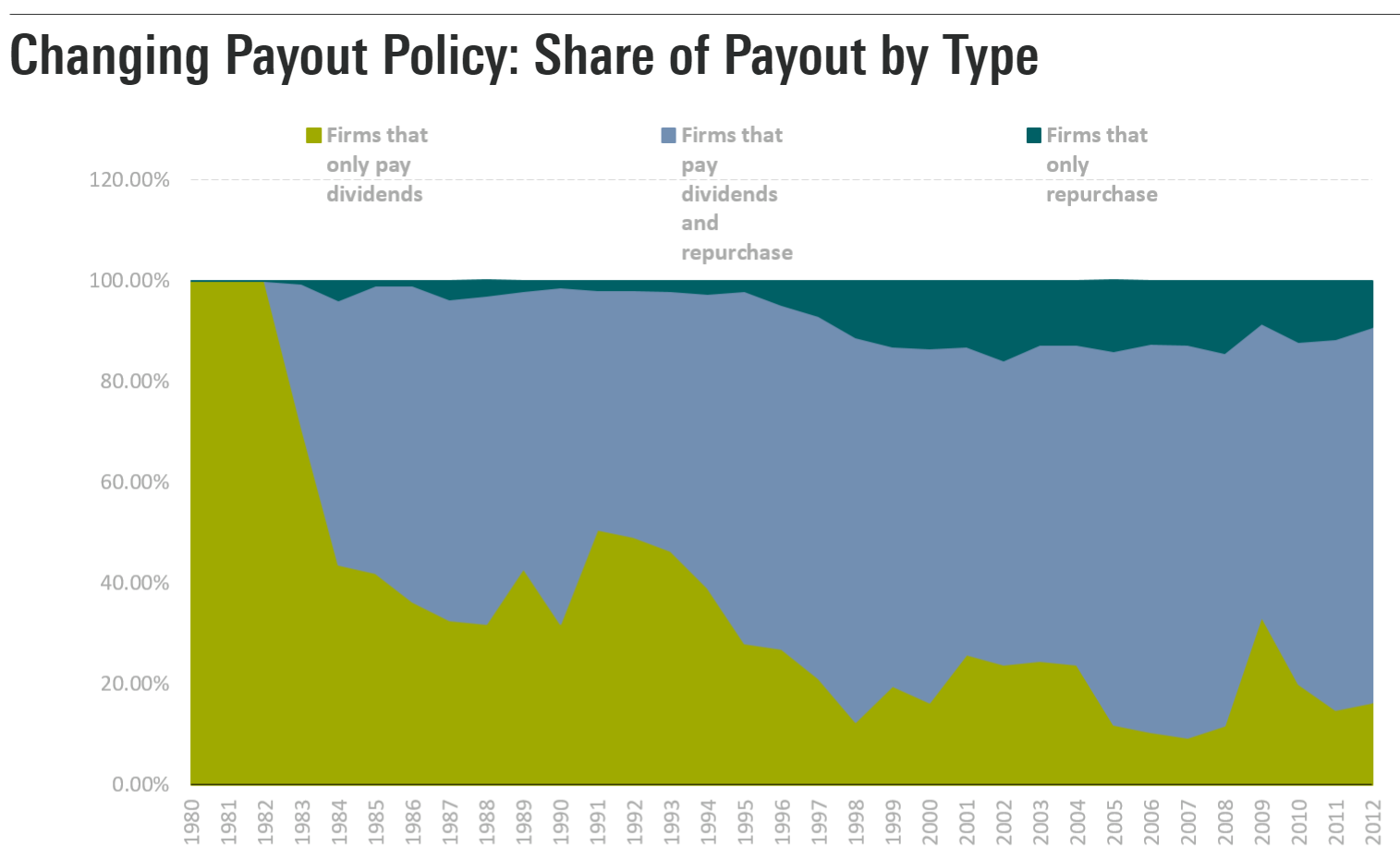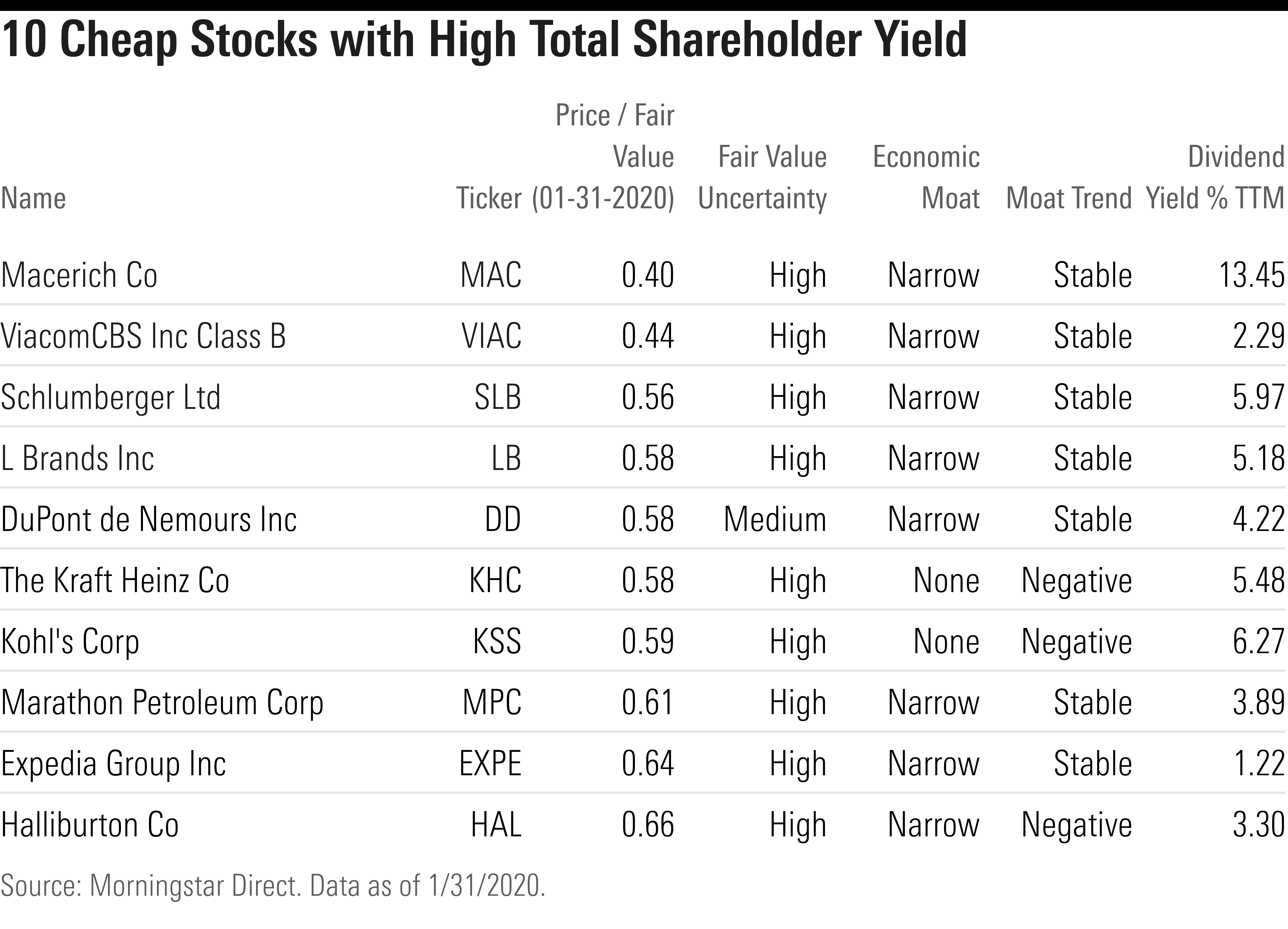10 Undervalued Companies With High Shareholder Yield
Investors can widen their opportunity set by redefining 'yield.'
There are two ways companies can put money back in shareholders' pockets: by paying a dividend or buying back shares of their common stock. From a shareholder's perspective, which is better?
Dividends vs. Buybacks Investors have long cherished dividends because they provide steady income. After all, "[A bird] in the hand is worth the whole arithmetic in the bush," as Hetty Green once quipped. And assuming the company pays a qualified dividend, which most U.S. companies do, the income is taxed at a preferred rate--investors in the highest tax bracket will pay 20%, while investors in the middle brackets will pay 15%, and investors in the bottom two tax brackets will not owe any income tax on dividend income.
Buybacks, on the other hand, are even more tax-advantaged than dividends from an investor's point of view. When a company repurchases its own shares, each investor's fractional ownership of the company increases because there are now fewer total shares outstanding. But, unlike a dividend payment, a buyback is not a taxable event for shareholders when it happens. Investors do not have to pay taxes until they sell the stock (and then capital gains rates would apply).
From a company's point of view, opportunistic share repurchases offer much greater flexibility than dividends do, which is one of the main reasons they have become so popular over the past several decades. Dividends, by comparison, are more rigid: Once a company commits to paying a regular dividend it is usually loath to cut it because investors perceive a dividend cut to mean that a company is in tough financial straits.
A New Paradigm: Total Shareholder Yield The good news is, you don't really need to take sides. Whether through dividend payments or increased ownership as a result of share repurchases, investors benefit. And it's often not an either-or proposition anyway: Many companies pay dividends and also buy back shares.
Since 1982, when regulators started to allow companies to more freely invest in their own stock, firms have increasingly elected to use cash to buy back their own shares, and most of those companies also pay a dividend.

Source: Morningstar Indexes.
In large part because of the rise in the popularity of buybacks, the U.S. market's aggregate dividend yield has fallen from its historical 3%-6% range. With the notable exception of the 2007-09 financial crisis, when depressed prices sent yields up, market-level yield in the United States has mostly hovered around 2%.
Interestingly, though, Morningstar researchers have found that when buyback yield is added to dividend yield, the resulting total shareholder yield is more in line with historical averages. Therefore, by including buybacks in their definition of "yield," yield-seeking investors can greatly widen their opportunity set.
The Morningstar US Dividend and Buyback Index is composed of companies that are standouts when it comes to returning profits to investors through dividends, buybacks, or a combination--what we refer to as total shareholder yield. Dividends are not required to be qualified income, so real estate investment trusts are eligible. Net buyback yield, which controls for companies issuing new shares (dilution), is averaged over eight trailing quarters. Only those companies that have returned capital to shareholders over that span are included.
Below are the 10 most undervalued stocks in the Morningstar US Dividend and Buyback Index.

Disclosure: Morningstar, Inc. licenses indexes to financial institutions as the tracking indexes for investable products, such as exchange-traded funds, sponsored by the financial institution. The license fee for such use is paid by the sponsoring financial institution based mainly on the total assets of the investable product. Please click here for a list of investable products that track or have tracked a Morningstar index. Neither Morningstar, Inc. nor its investment management division markets, sells, or makes any representations regarding the advisability of investing in any investable product that tracks a Morningstar index.

/s3.amazonaws.com/arc-authors/morningstar/3a6abec7-a233-42a7-bcb0-b2efd54d751d.jpg)
:quality(80)/cloudfront-us-east-1.images.arcpublishing.com/morningstar/RFJBWBYYTARXBNOTU6VL4VSE4Q.png)
:quality(80)/cloudfront-us-east-1.images.arcpublishing.com/morningstar/T3GL43HDAFE4XKUGIENW4D5DDI.jpg)